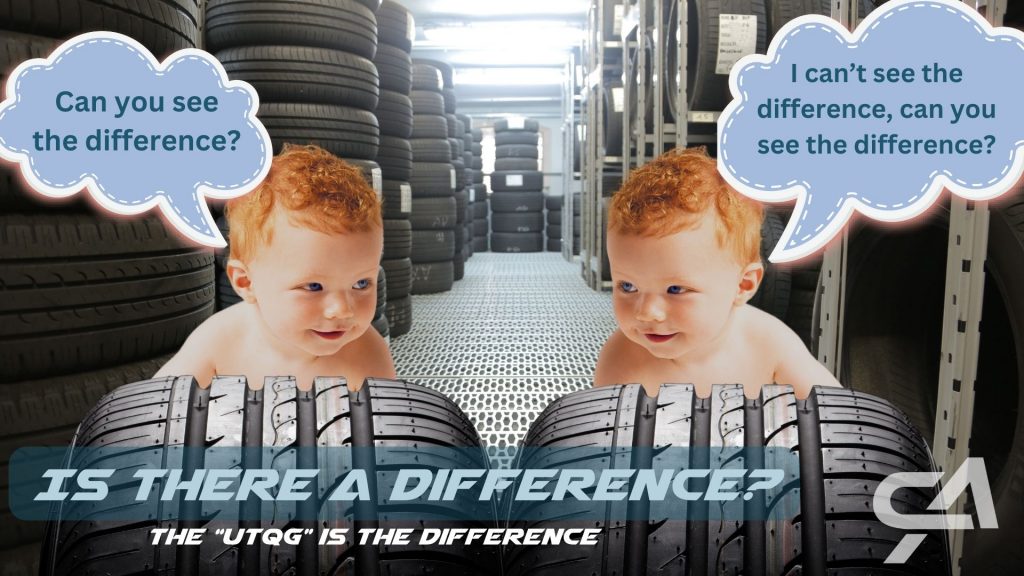The Difference is The Uniform Tire Quality Grading (UTQG)
As summer approaches, it’s the perfect time to ensure your vehicle is ready for all your warm-weather adventures. One crucial aspect of vehicle maintenance is understanding your tires, particularly the Uniform Tire Quality Grading (UTQG) codes. This month, we’ll explore these codes and highlight why choosing the right tires and avoiding off-brand (and some other well known brands made for specific companies, echem, Costco..) options is important for your safety and vehicle performance.
What is UTQG?
The Uniform Tire Quality Grading (UTQG) system is a standardized rating system established by the US Department of Transportation. This system helps you compare and evaluate tire quality based on three critical criteria: treadwear, traction, and temperature resistance. Decoding these ratings can guide you in making informed tire choices.
Treadwear Matters
The treadwear rating indicates how long a tire’s tread is expected to last. A higher number means greater longevity. For example, a tire with a treadwear rating of 400 should last twice as long as one with a rating of 200. If you frequently drive long distances or on rough roads, a higher treadwear rating can save you money over time by reducing the frequency of tire replacements.
Grip and Safety
Traction ratings measure a tire’s ability to stop on wet surfaces, ranging from AA (highest) to C (lowest). In Alberta’s diverse weather conditions, a high traction rating (A or AA) ensures a better grip on wet or slippery roads, enhancing your safety during those sudden summer rain showers.
Handling the Heat
Temperature ratings assess a tire’s ability to withstand and dissipate heat, which is crucial for high-speed driving. The ratings are A (highest), B, and C. Tires with higher temperature ratings are less likely to overheat, reducing the risk of blowouts and improving safety, especially on hot summer days.
The Risks of Off-Brand Tires
While saving money by purchasing off-brand tires might be tempting, it’s essential to be cautious. “Off-brand” tires are not subject to the same rigors of testing.
Inconsistent UTQG Ratings.
Off-brand tires may not provide accurate UTQG ratings, making it difficult to gauge their performance and safety levels.
Lower Quality Materials:
These tires may be made from inferior materials, which can lead to quicker wear and tear and less reliable performance.
Safety Risks:
Without proper testing, off-brand tires might not perform well in extreme conditions, increasing the risk of accidents.
Making the Right Choice
When selecting new tires, consider UTQG ratings to ensure they match your driving habits and our local conditions. Opt for reputable brands known for their quality and reliability. If you need more clarification, our team can provide expert advice and recommendations tailored to your needs.
Understanding UTQG ratings and the potential risks of off-brand tires empowers you to make informed decisions, ensuring your vehicle is equipped for optimal performance and safety. Our expert team is always here to help you navigate these choices and provide personalized recommendations.
Contact us today to learn more about selecting the right tires for your vehicle. Your safety and satisfaction are our top priorities.
Safe travels!

